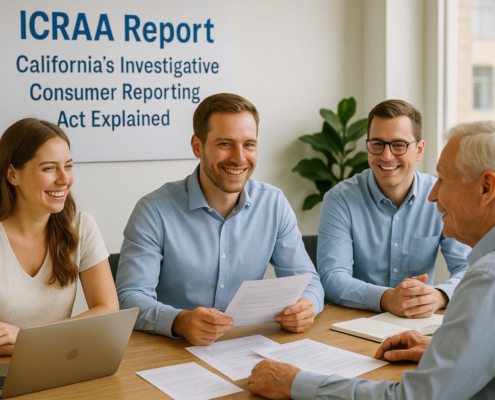What is the fraud assessment fee in California?
Insurers operating within the state are required to pay a special purpose assessment, with the exact amount set by the commissioner, with a maximum annual cap of one dollar ($1) per insured vehicle.
This assessment will go toward funding efforts to combat economic automobile theft and fraudulent insurance claims. Of the ninety-five cents ($0.95) of the special purpose assessment per insured vehicle, thirty-four percent will go to the Fraud Division to help with investigations, fifteen percent will go into the Motor Vehicle Account to help the California Highway Patrol with investigations and prevention of economic automobile theft, and fifty-one percent will go to district attorneys to help with investigations and prosecutions of cases of automobile insurance fraud, including cases involving economic automobile theft.
District attorneys will receive funding from the commissioner based on the population. To ensure the most efficient allocation of funds, the commissioner may make adjustments to this distribution formula as needed. Any local district attorney interested in receiving funding from this source must apply to the commissioner with specifics about how they intend to spend the money. At the very least, the application needs to include the following to provide a thorough accounting of assessment funds received and spent in previous years:
(A) The sum of money that came in and went out.
(B) A breakdown, by category, of all expenditures made with those monies, including but not limited to salaries and other expenses, equipment and supply purchases, and other purchases.
(C) The outcomes attained as a direct result of financial investments, such as the quantity of probes, detentions, grievances lodged, and convictions, as well as the ratio of initial claims to actual payments in prosecuted cases.
(D) Any other information that the commissioner may need.
If a district attorney does not submit their application by the commissioner-set deadline, they will not be able to receive the funds. When deciding how to distribute funds to individual district attorneys, the commissioner may take into account suggestions and counsel from the Fraud Division as well as the California Highway Patrol Commissioner. The commissioner may make public any report that a district attorney who receives funding submits each year detailing the program’s success.
The report will include details and numbers about active investigations, charges, arrests, and verdicts. Funding requests and disbursement records must be open to the public. At least once every three years, the programs managed under this subdivision must undergo a fiscal audit by the commissioner. Both the department and the district attorney are required to contribute equally toward the expense of a fiscal audit.
Subject to the provisions of this section, the commissioner shall maintain the secrecy of any information pertaining to any criminal investigation, whether ongoing or completed. The commissioner has the authority to stop disbursing funds for a county and re-allocate them to other qualified district attorneys if he or she finds that a district attorney is unwilling or unable to investigate and prosecute claims of auto insurance fraud in accordance with this subdivision or Section 1874.8.
Each year, in the same style as district attorneys are required to follow in paragraph (1), the California Highway Patrol Department is required to submit a report to the commissioner outlining the department’s planned use of funds under this section. This report is intended solely for informational purposes.
The Fraud Division will use the remaining five cents ($0.05) to further their investigation of vehicle insurance fraud.
With the exception of funds designed for the Motor Vehicle Theft Prevention Act (Chapter 5 (beginning with Section 10900) of Division 4 of the Vehicle Code), which is to be distributed to the Department of the California Highway Patrol, any funds received under this section are to be placed in the Insurance Fund and spent or distributed as the Legislature directs.
The Fraud Division will investigate all reported cases of likely fraud and report those individuals to the relevant disciplinary body. They will also gather any evidence that points to suspected fraudulent activity by licensees under the Business and Professions Code.
For the purposes of this section, “economic automobile theft” refers to crimes committed with the intent to obtain money, which may include:
(1) Auto theft with the intent to commit a financial crime.
(2) Making a fabricated insurance claim by reporting the theft of a motor vehicle.
(3) Committing a crime as defined in Division 4 of Chapter 3.5 (beginning with Section 10801) of the Vehicle Code.
(4) Adding a new VIN to an already-owned stolen car in order to register it.































